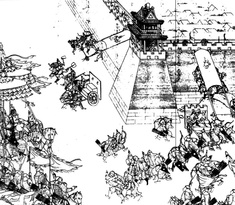
Emperors of Ming - Part 2
First published: Wednesday December 22nd, 2021
Report this blog
Introduction
Hey all, I'm back to writing blogs :D
Previously, because of final exams and mocks as well as Minecraft, I kept this project on hold for about 40 days. Now that winter holidays have started, let's get right back to this. In part 1, we covered the first 7 emperors of Ming spanning 8 eras from 1368 till 1464. This will be the second and final blog of the series, and we will go through the other 9 emperors who reigned from 1464 to 1644.
Alright, without wasting more of your time, here comes the Chenghua Emperor...
Chenghua (1464-1487)
In the year 1464, Zhu Jianshen (1447-1487) ascended to the throne at the age of 17. Early in his reign, he made several reforms and strengthened the empire. However, it seemed like a mere 3-minute passion thing as it quickly died down in just a couple months. Soon, his attention was diverted to Wan Zhener (1430-1487), his ex-nanny, who quickly became his favorite consort.
The two had a son in 1466, who died an infant. As Lady Wan was approaching her 40s, she was no longer exactly fit to give birth. Supposedly, she also hired eunuchs to spy on others and report to her if there were any concubines pregnant. These concubines often ended up tortured and even murdered, and thus the Emperor did not have a crown prince until Grand Empress Dowager Xiao Su (1430-1504) protected a pregnant maid. The child was then raised outside of the palace without the Emperor's knowledge to prevent action from Lady Wan. But, later studies did discover that these were likely not the case, as the Emperor actually knew about the birth and that Consort Wan did take care of the child herself at some point.
While the imperial family was busy with the heir issue, factionalism amongst eunuchs increased by day. As a typical paranoid emperor, Chenghua set up the Western Depot, a secret police that spied on the Eastern Depot, the Jingyiwei, officials and sometimes regular civilians. Eventually, the Western Depot was shut down for power abuse. However, this began a trend of power abuse by many eunuchs, and the governing power begins to gradually fall in the hands of corrupt eunuchs and officials. The Emperor also ended up granting favors to those he liked and this wasteful spending depleted the treasury.
Following Consort Wan's death in spring of 1487, the depressed Chenghua Emperor fell ill. Months later in summer, he passed away. He was buried in the Maoling Mausoleum of the Ming Tombs.
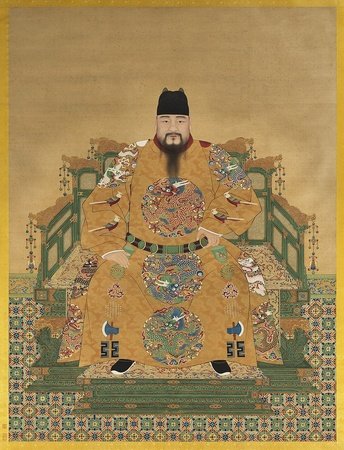
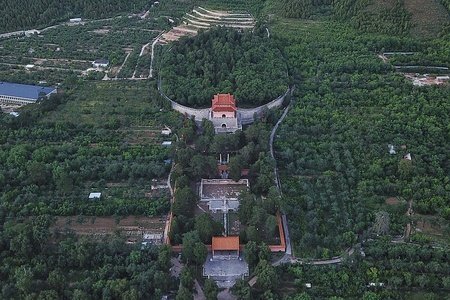

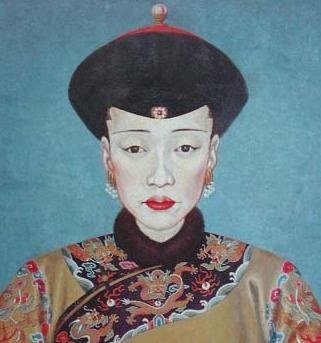
Hongzhi (1487-1505)
With his father dead, the protected prince, Zhu Youcheng (1470-1505) was crowned the Hongzhi Emperor. He was rated one of the few good emperors of the dynasty. Unlike most monarchs in Chinese history, Hongzhi was rather open and encouraged transparency with him, allowing criticisms directed towards himself. Also, he introduced several policies that made him rather popular, including loweing taxation and increased tolerance with Islam. While Ming was infamous for factionalism and corruption amongst eunuchs, their influence was supposedly reduced and power struggles were at its minimal during the Hongzhi era.
The Emperor had one and only one empress without a single concubine, making him one of the two monogamous emperors in Chinese history. Sounds like the ideal man, doesn't he?
Unfortunately, the diligent and loyal Hongzhi passed away fairly early at the age of 34, 18 years into his reign. After his death comes the truly dark ages of Ming...
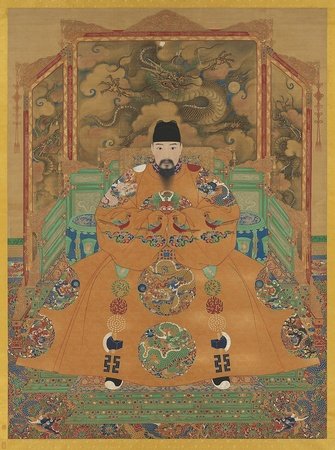
Zhengde (1505-1521)
In 1505, 13 year old Zhu Houzhao (1491-1521) took the throne and adopted the era name Zhengde. Well, well, well, another young emperor? What do young emperors typically mean again? Oh right, opportunities. Zhengde was infamous for being childish, and when officials tried advising him to cease, he oppressed their opinions through reviving the Western Depot.
If you thought that was bad enough, unfortunately, there's more to that. During his reign, the eunuch Liu Jin (1451-1510) rose to power. He controlled the 3 existing secret police of Ming (Embroided Uniform Guard / Jingyiwei, Eastern Depot / Dongchang, Western Depot / Xichang). To further consolidate power, he set up a fourth agency called Neihangchang, or the Palace Depot, which was used to spy on and control all other agencies more efficiently. At this point, with all his new found power, Liu's intentions grew bigger and bigger. Many already saw him as the de facto emperor, and he dreamt to make that status official. But, just 5 years into the Zhengde era, he was caught conspiring against the Emperor and was executed by lingchi (slicing off one's flesh bit by bit). With Liu Jin dead, the Western and Palace Depots were shut down and never to be seen again. However, corruption within the Eastern Depot and Jingyiwei remains and these two agencies would survive till the final days of Ming.
As the sole successor to the throne, many expected him to be a great emperor like his father. Although, as stated, he was sadly one childish and selfish man who depleted the treasury to fulfill his own luxurious lifestyle. Not only that, as many poorly rated emperors did, hmm, let's say that he had a big thing for women. He often visited brothels and established the Bao Fang, where he had exotic animals held in captivity for entertainment. Well, as the manly man he was, he eventually swapped those exotic animals for some exotic women. Supposedly, many of those women starved to death due to a lack of supplies.
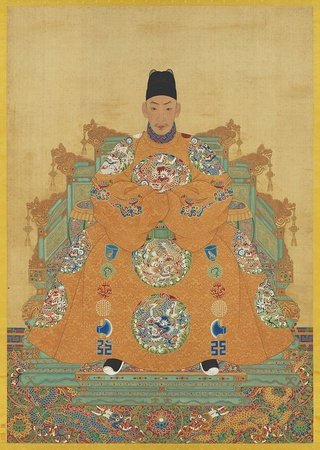
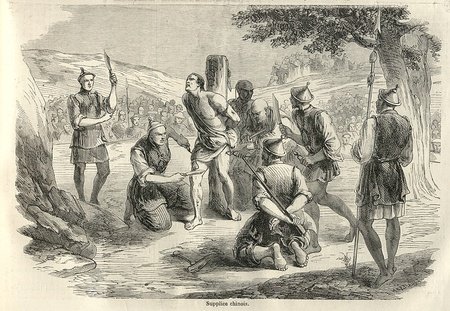
As you can tell, it was the Emperor's turn to abuse power. Zhengde gave himself the honorary title of "威武大将军" (The Mighty General) as an excuse to send himself off on expeditions. In 1519, he went south to put down the Prince of Ning Rebellion, which was already dealt with by Wang Yangming (1472-1529). For that, his personal advisor even suggested releasing and re-capturing of the prince.
He died exactly how he lived. After that rebellion, on his way back to the capital, Zhengde decided that it was a good idea to hop on a boat to have some fun. Allegedly drunk, he fell off the boat and nearly drowned in the Yellow River. Though the water spared him, the pathogens in the water didn't. Soon, in early 1521, he died at the age of 29.
Generally, terrible records were written by successor states to justify their overthrow of the preceding dynasty. Hence, many emperors accused of lust and corruption were likely not as bad as recorded. Zhengde, though, was a rare case. Those stories were all documented by Ming itself. Apparently, these records likely remained as he had no surviving children, and thus his successor was not his own child.
Although he was surely terrible as an Emperor, he did improve relations with the Muslim world. He invited many Muslims to work at his court and during his reign a lot of Persian and Arabian arts were brought into China. A grand mosque was constructed in Beijing and Zhengde prayed there. An edict against slaughter of pigs was issued. Increased numbers of Muslim eunuchs worked under the Emperor. All those led historians to believe that Zhengde adopted Islam after witnessing the beauty that was mostly unknown to China at the time. Oh, and of course, he preferred Muslim women.
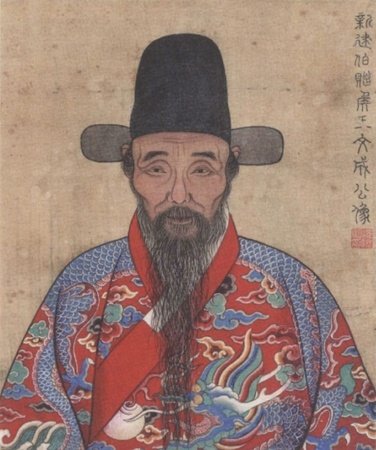
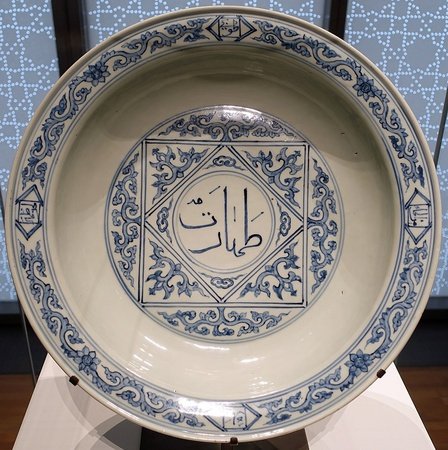
Jiajing (1521-1567)
As the Zhengde Emperor died childless and had no surviving siblings, the throne was now vacant and a close member of another line must be put in place. Thus, the now-dead Emperor's cousin, Zhu Houcong (1507-1567), was crowned the Jiajing Emperor at the age of, once again, 13.
Unlike his older cousin though, Jiajing was known to be an intellect. He shut down the Bao Fang, reduced taxes and executed many corrupt officials left from the previous era. So, was the Ming about to take another turn and thrive yet again? Well, no. As he was not originally part of the succession line, he had an argument with his officials over this topic, and it did not go so well. To show his disagreement, he went on strike and did not interfere with any governmental matters. Since he decided to not care about this anymore, he relied on his subordinates to help him rule the state. Not a great thing, of course. With this, Grand Secretary Yan Song (1480–1567) was able to take power and ended up murdering officials he disliked. Yet again, power abuse and factionalism were on the rise...
Jiajing was a devoted Taoist. He often took elixirs that supposedly granted him extended life and potency. Once, an elixir's recipe included menstrual blood of virgin girls. Thus, virgin palace maids were forced to collect their blood, and specifically that type of blood, for the Emperor's consumption. Anyone who did not obey would be executed. Disgusting. For this, a group of palace maids ganged up and plotted to strangle the Emperor. This plot failed, however, because the knot tied on Jiajing's neck did not tighten, and as they panicked, one palace maid even ran to the Empress for some reason. Soon, all palace maids involved were to be executed by lingchi and had their families killed too. This event is known as the Palace plot of Renyin year.
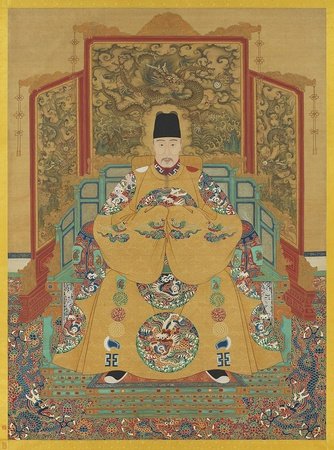
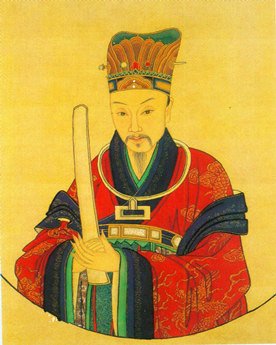
After the assassination attempt, the Emperor, now 35, decided to move out of the palace and live with a 13 year old girl who could satisfy his "manly needs". I know how incredibly wrong it sounds today, but emperors doing their deeds with young women wasn't a rare thing. Now, with him living outside the palace, he cared even less about all those imperial duties he had and focused even more on Taoism. He constructed temples, hosted rituals, and consumed more elixirs. The Emperor became a burden for Ming and this triggered several revolts across the country.
In most of the country, the Jiajing era saw peace. But, in the later years, rebellion broke out across the country, the Mongols remained a threat to the Chinese and was messing at the borders, and Japanese pirates, more often known as Wokou, were seen raiding coastal settlements. The final one was eventually dealt with and nearly eradicated by Qi Jiguang (1528-1588).
In his final years, he continued his way of living: taking elixirs and engaging in sexual activities with teen girls, forcibly. To produce those elixirs, he had fellow Taoists collect rare materials across the country. Unsurprisingly, overdosing elixirs containing potentially harmful materials, such as mercury, worsened Jiajing's health over time. At the age of 59, he died from elixir poisoning.
Interestingly, Jiajing was a cat lover. Supposedly, he adored those little creatures so much he even assigned them official titles and paid them wages.
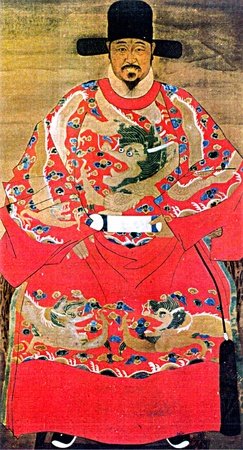
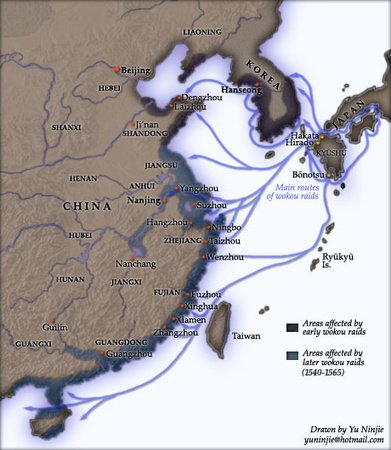
Longqing (1567-1572)
As the typical emperor of late Ming, Zhu Zaiji (1537-1572), now the Longqing Emperor,started off with doing good deeds. He ended all the Taoist rituals initiated by his father, purged corrupt officials, handed important positions to diligent and loyal officials such as Hai Rui (1514-1587) and Xu Jie (1512-1578), pushed the Mongols back North, fortified borders, and restarted trade with the West. Everything was going great for now.
Soon enough, the Emperor was distracted from these once again. An exotic Turkish woman by the name of Nu Er Huahua was brought into the imperial palace and was said to have all of Longqing's attention.
Although the twist was disappointing, you can probably tell that it's not the first time this has happened - almost like a tradition by now. To please his concubines, the Emperor started to take more and more aphrodisiacs, which eventually drained his health. Hence, he passed away at just 35 years old. Not a bad emperor by any means, as his reign was peaceful and the typical drama present in the Forbidden City was mostly absent. Also, one thing worth noting, he did find one of the most diligent and intelligent officials amongst his subordinates who would help his son lead the country - Zhang Juzheng (1525-1582).
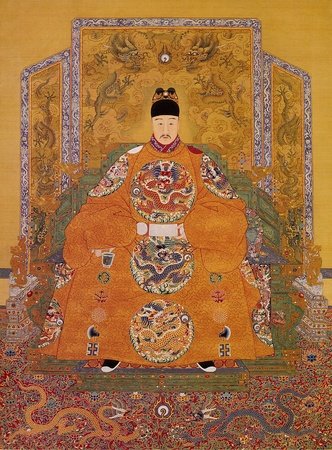
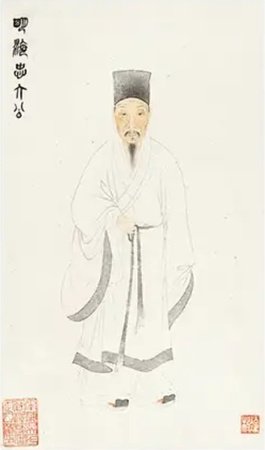
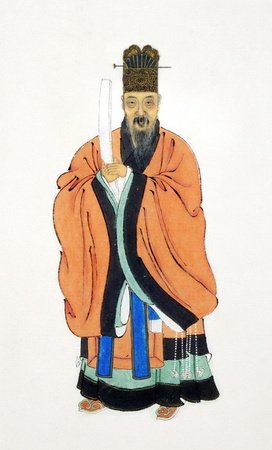
Wanli (1572-1620)
As the Longqing Emperor died early, once again, Ming was left with a child emperor - Zhu Yijun (1563-1620), more commonly known as the Wanli Emperor. Because the Emperor was just 8 years old, his teacher, the Grand Secretary Zhang Juzheng, acted as regent before the Emperor could take over himself. He attempted to restore discipline, introduced tax reforms, and promoted competent generals such as Qi Jiguang. His policies allowed Ming to once again become powerful.
Despite his success, the fact that he was strict brought about resentment. Thus, when he passed away in 1582, many accused him of severe charges and his family was purged, with all its wealth confiscated. His reputation was only restored in the last two decades of the dynasty.
With his teacher dead, 18 year old Wanli took control of the government himself. He was a competent emperor. The empire continued to thrive under his rule, although not as drastic as it did under Zhang Juzheng. You would probably think that the Ming dynasty was going to last another century or two. Well, if that's the case, you're wrong.
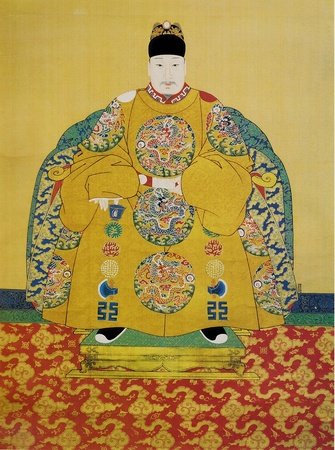
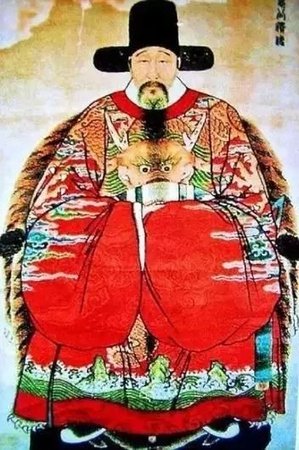
The Wanli era lasted 48 years, and in the final two decades of it, the Emperor inherited the good ol' tradition of becoming lazy after a period of diligence. Once, he had a dispute about succession. Initially, he wanted to promote his son with his favorite consort Noble Consort Zheng (1565-1630) (Zhu Changxun (1586-1641)) as crown prince. Ministers and the Empress Dowager at the time opposed that idea. Then, Wanli gave in and had his eldest son, Zhu Changluo (1582-1620), be the crown prince. Following that, he decided to go on strike - just like his grandfather Jiajing - and not deal with governmental matters till his death. Because of this, there was severe understaffing and factionalism was on the rise yet again. The government became an absolute mess whilst Jurchens in the Northeast, led by Nurhaci (1559-1626), rebelled against Ming and formed the state of Jin (1616-1636) (more commonly known as Later Jin).
If anyone was to blame for the fall of Ming, Wanli would definitely be one of the top picks. His neglect of duties led to political chaos and allowed foreign powers to arise and threaten Ming's position as the sole power of China. Finally, in 1620, he passed away, likely due to the fact that he was an alcoholic. He was buried in the Dingling Mausoleum, one of the largest of the Ming Tombs, which he depleted the Ming treasury to construct.
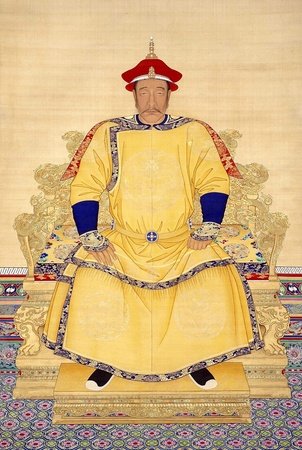
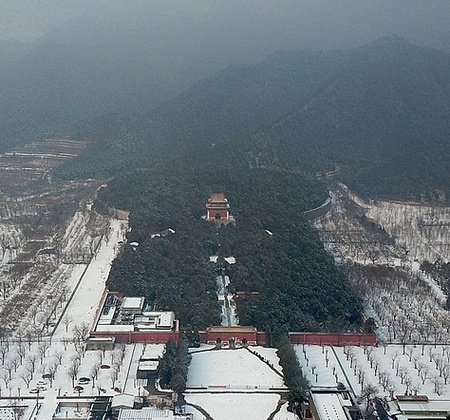
Taichang (1620)
After nearly being demoted by his father and several failed assassination attempts, Zhu Changluo finally ascended to the throne as the Taichang Emperor. You might be asking: Bread, did you mess the dates up? Well, I actually didn't, because the Emperor died shortly after taking the throne.
Here's what happened. Remember Consort Zheng? Well, since she was the reason why Taichang was nearly demoted, she feared that her position might be taken away after he took power. Therefore, as an attempt to improve her reputation, she offered the Emperor four beauties. Sleeping with four people in one night must've been a tiring task, and soon enough the Emperor fell ill. He took a dose of laxative and was met with diahrrea. To counter that, he was given a red pill. After taking the pill, he reportedly felt much better. We all know that taking too much medicine isn't a good thing, but it looks like Taichang didn't have that piece of knowledge, so he asked for another. The following morning, he was found dead, a mere 29 days after his coronation.
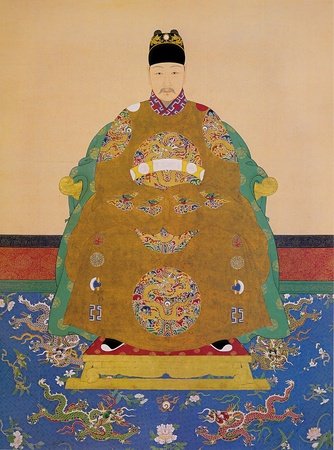
Tianqi (1620-1627)
Following the death of the Taichang Emperor, his eldest son, Zhu Youjiao (1605-1627), became the Tianqi Emperor. The Tianqi Emperor was not interested in his imperial duties. He was, however, an outstanding carpenter and spent a lot of his time woodworking. So, he left state affairs to his favorite subordinate, infamous Wei Zhongxian (1568-1627). Surprise surprise, Wei was a corrupt man. In fact, he is considered one of the most powerful and notorious eunuchs in Chinese history. Factionalism in the government and the palace did not cease. In the harem, Madame Ke (1588-1627), the Emperor's wet nurse, starved Tianqi's concubines to death, and as a result he had only one son. Meanwhile, Wei suppressed and killed many members of the Donglin movement at court. As a result, the Tianqi era saw even higher corruption as well as more uprisings and foreign invasions than previous eras.
In 1626, the Wanggongchang Explosion killed around 20,000 people, including the Emperor's only son. Then, in 1627, the Tianqi Emperor fell off boating and died soon after.
Interestingly, the term Tianqi translates to "apocalypse". Well, unfortunately for them, the apocalypse was to come very soon.
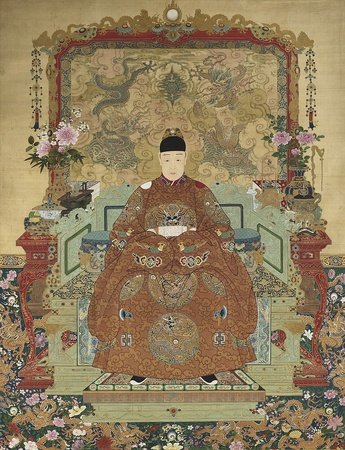
Chongzhen (1627-1644)
As the Tianqi Emperor died childless, his sole surviving brother, Zhu Youjian (1611-1644), became emperor and adopted Chongzhen as his era name. The typical final emperor would either be a lazy fool who favored corrupt officials or a mere child who had no true power. Chongzhen was not the case though. Soon after taking the throne, the 16 year old managed to execute Wei Zhongxian. One thing worth noting was that Wei was already super powerful and probably had eyes on the Emperor. Thus, getting rid of him without being assassinated was certainly not an easy task, and that shows that Chongzhen was surely a capable intellect.
Getting rid of Wei was already a tough one, yet, there was more. The Ming dynasty was already in ruins after decades of corruption, factionalism and non-existent leadership under lazy emperors. Despite favoring progressive subordinates and being a diligent man himself, he still failed to rescue the falling empire. Rebellions across the nation and invasions from Later Jin / Qing (1636-1912) led by Hong Taiji (1592-1643) pierced the already fragile Ming repeatedly. The latter was actually halted by Yuan Chonghuan (1584-1630) at Ningyuan. Since the Manchu forces could not push through by force, Hong Taiji sought alternative strategies. He ended up sending people to Beijing and having them spread rumors of Yuan being a traitor and having plans to defect. Chongzhen was a paranoid man, and soon Yuan Chonghuan was executed by lingchi for treason.
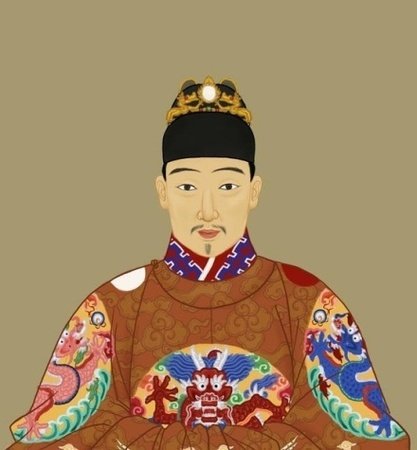
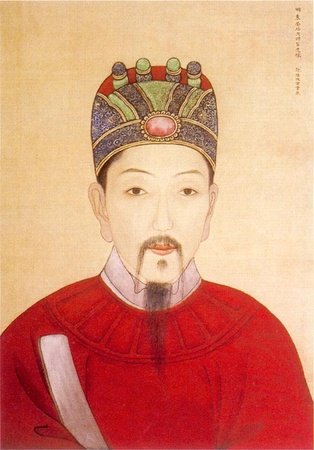
Among the rebel forces, the most notable ones were the Great Shun (1644-1649) and the Great Xi (1644-1647). The former was led by Li Zicheng (1606-1645). In 1644, Li's forces entered Beijing. With this, Chongzhen ordered his sons to flee and killed the rest of his family apart from the Empress. The next day, alongside the Empress, he committed suicide by hanging himself on a tree.
Prior to suiciding, the Emperor left a death note that said
"I die unable to face my ancestors in the underworld, dejected and ashamed. May the rebels dismember my corpse and slaughter my officials, but let them not despoil the imperial tombs nor harm a single one of our people."
Although Ming remnants were still around and proclaimed a Southern Ming dynasty in the South with Nanjing as its capital, the death of Chongzhen in 1644 was generally seen as the end of Ming. Soon, Qing would defeat Shun and become the undisputed successor state.
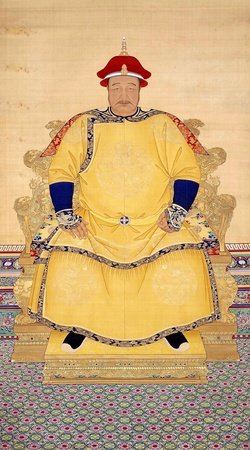
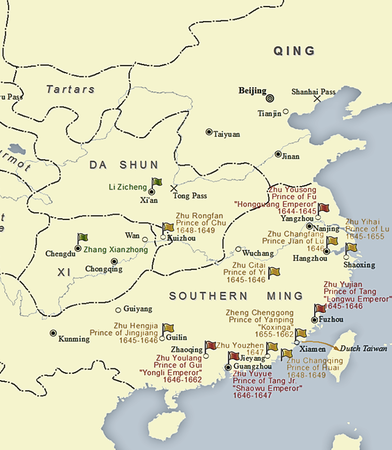
Summary
Ming (1368-1644) was the final ruling dynasty of China under ethnic Han people. It saw a hopefully start where Chinese people ceased to face foreign oppression as they did under the Mongol Yuan dynasty. But, as we approached mid 15th century, the Tumu Crisis happened and the empire's internal weakness was put on full display. With that, riot within the borders became more and more frequent as time moved on and foreign pressure further weakened Ming. Although there were a few eras of peace in the second half of the dynasty, it was characterized by lazy emperors, corrupt eunuchs, factionalism, and instability. Truly a saddening story.
Now that's all we have for this series. It took me quite some time to gather all the information and write all this. 20,702 characters in the previous blog and 24,254 in this one. Hope you all liked it and learnt something new. What are your opinions on Ming after reading this? Is there anything interesting about these emperors that I've missed? Feel free to let me know.
Until next time... and wish you an early merry Christmas :D
Sources: Wikipedia, Baidu Baike, cheap (videos in Mandarin with traditional Chinese captions)

Of course, my favorite emperor is Wanli lol
But I should restate that Wanli was one of the worst emperors of MingWhy do Chinese emperors look like almost the same personAlso no, if you look up Daoguang (Qing) and then look back at the Ming Emperors, the difference is hugeOne thing to note is that the era of Chenghua is famous for its porcelain, when the art form reached its peak. If you happen to own one from that era, you'd be a multimillionaire now.
Thanks for the comment :D